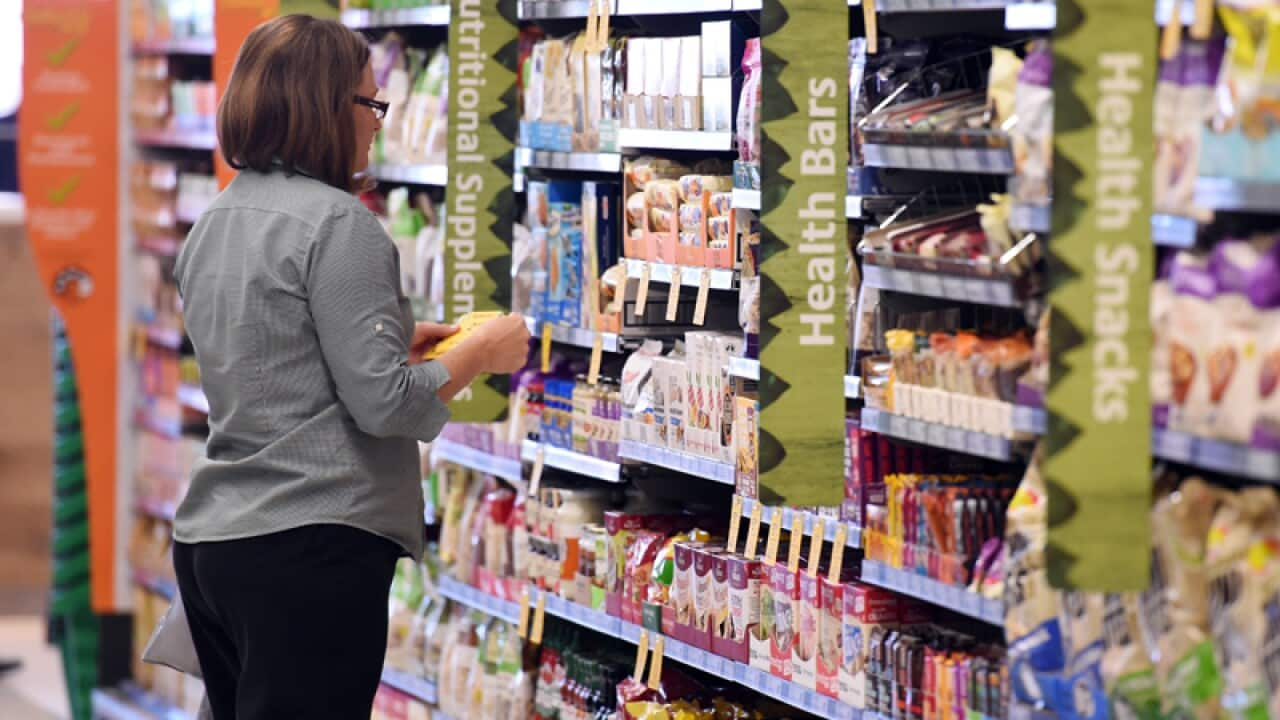Australia’s new country of origin food labelling laws come into effect on July 1, 2016. The new labels will indicate if food is grown or made in Australia and the proportion of Australian ingredients.
The government has justified the new laws on the basis of the consumer’s right to know where their food is grown and processed. The immediate event that led to the current laws was public concern over the safety of imported frozen berries. The new labels will make it clearer where food is produced, grown, made and packed.
Why stop at country of origin?
Our food choices have far greater consequences than simply where our food is grown and processed. Our everyday food choices have a significant influence on our health and environmental footprint, as well as on ethical issues associated with how food is produced.
So why stop at country of origin? Consumers also have a right to information on the environmental impacts and ethical consequences of their food choices.
The Australian experience suggests while food labels may be necessary, they are not sufficient to ensure healthy eating. Despite existing dietary guidelines, food labels and healthy eating campaigns, Australia has a high and growing percentage of obese and overweight people.
We consume far too few serves of whole fruit and vegetables, and far too many discretionary foods (‘treats’ that aren’t nutritious). Already there are a plethora of food labels making health claims, but as the Heart Foundation Tick controversy (where fast food outlets were able to use the Heart Foundation Tick) made clear, there remains the need for government oversight and auditing of claims.
Globally, there is growing interest in the concept of sustainable diets, which combine healthy diets with reduced environmental impacts. Small shifts in our diet can accumulate large benefits for public health and for the health of the planet.
Although still at an early stage, there is emerging consensus on what constitutes a sustainable diet including increasing vegetable and pulse consumption, reducing consumption of highly processed food, moderating meat consumption – particularly processed meat – and minimising food waste.
The question of whether or not dietary guidelines should consider environmental criteria remains contentious. For example, not all members of society would necessarily benefit from a reduction in red meat consumption, but for those consuming quantities of red meat above the Australian Dietary Guidelines, a reduction would have both health and greenhouse gas emissions reduction benefits.
A less contentious intervention would be to target a reduction in consumption of discretionary foods. These contribute to excessive energy intake and also contribute to dietary greenhouse gas emissions while offering little nutritional value. Any moderation of their consumption from the current 36 per cent of energy intake for the average Australian would result in public health and environmental benefits.
The European Commission is already well down the path of implementing a voluntary environmental labelling system known as the Product Environmental Footprint. Several of the pilot studies have involved food and grocery products.
What makes a good food label?
Food labels are most effective in ‘nudging’ behaviour at the point of purchase. Most people don’t have the time or inclination to comprehend a complicated message, so the label needs to be clear, quickly recognisable and unambiguous.
The new country of origin food labels score well on this criteria.
Another effective scheme is the Red Tractor food label used in the UK that provides consumers with assurance that specific guidelines for animal welfare, food safety, food sustainability and traceability have been observed during production and processing.
Consumers need to have confidence in the label, trust in the authority behind it, and belief that it represents their best interests.
The arguments for greater scope in food labelling include:
• the consumer has a right to know the environmental and ethical consequences of their food choices
• environmental labelling could support more sustainable food consumption and production, making a significant contribution to mitigation of climate change. This can be seen as an extension of water and energy efficiency labelling schemes, which are mandatory for many home appliances
• a nationally coordinated food labelling scheme could protect consumers from spurious or misleading claims if surveilled by a legislated authority such as the ACCC
• Australian food exports would be appropriate for international markets.
The arguments against greater scope in food labelling include:
• greater compliance costs and complexity for industry, especially smaller businesses, and greater administration costs for taxpayers
• environmental imperatives must not lead to negative health outcomes for people.
Where to next for food labelling?
Perhaps it is inevitable there will be an increase in food labelling in Australia. As labelled products from other countries enter Australia, local consumers will begin to question why we don’t have similar schemes.
Our food exporting sector will also be increasingly exposed to expectations from supply chain partners and retailers in destination countries.
Bill Bellotti, Professor and Director Food Systems Program, Global Change Institute, The University of Queensland
Brad Ridoutt, Principal Research Scientist, CSIRO Agriculture, CSIRO
This article was originally published on The Conversation. Read the original article.
SBS Food is a 24/7 foodie channel for all Australians, with a focus on simple, authentic and everyday food inspiration from cultures everywhere. NSW stream only. Read more about SBS Food
Have a story or comment? Contact Us

